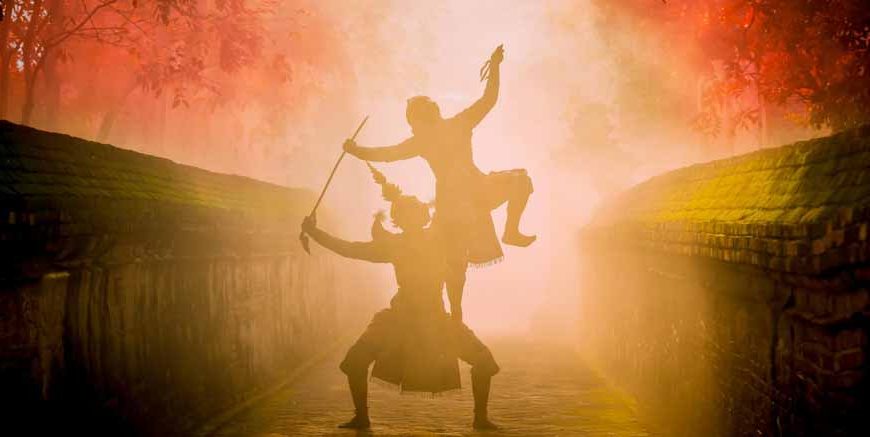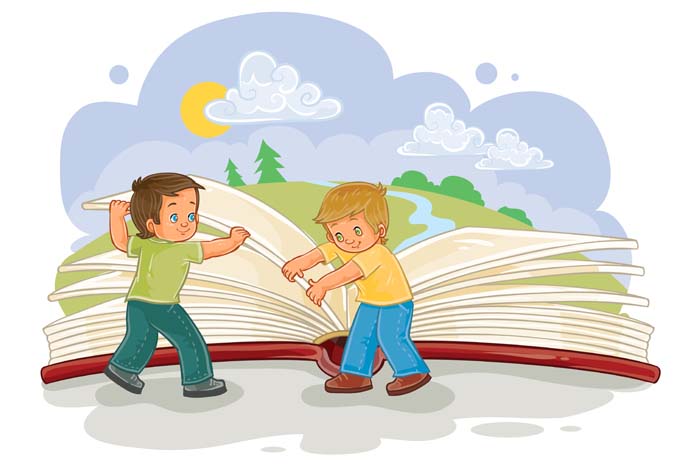Long before Harry Potter, there was The Mahabharata!
This literary gem we devoured avidly in our childhood played a far greater role than merely having us engrossed in a mesmerizing new world. In fact, The Mahabharata might well be responsible for several of the ‘sound values’ that are firmly ensconced in our characters today!
Talking about The Mahabharata, today’s day and age might just be the best possible time to introduce Mahabharata Stories for Kids, to your little ones. We at EuroKids are proud to have compiled a list of the best stories from Mahabharata for kids.
Mahabharata Stories for Kids: Top 7 Moral Stories from the Mahabharata for Kids
If you’re unsure about which Mahabharata Stories for Kids you want to be narrating to your children, you’ve come to the right place!
Presenting the best Mahabharata stories for kids that are especially relevant to today’s age!
- Arjuna and the Bird’s Eye Test
- Duryodhana’s Big Mistake
- Abhimanyu and the Chakravyuh
- Arjuna’s Dilemma
- Eklavya and Dronacharya
- Bhima and Hanuman’s Tail
- Yudhishthira and the Yaksha’s Questions
The great Guru Dronacharya once asked his students, the Kauravas and Pandavas, to be part of an archery test. Telling them to aim at the ‘eye’ of a toy bird that rested on a tree branch, he then asked them what they saw. One of them said ‘sky’ and another, ‘the bird’. It was only Arjuna, who said he saw the ‘blackness’ of the bird’s eye. Satisfied with Arjuna’s answer, Dronacharya permitted only him to shoot. And he did, that too with precision!
Moral: We must push aside the irrelevant things in our lives and focus on our goals.
Before the great battle of Kurukshetra, both Duryodhana and Arjuna were furiously campaigning to gather all the support they could for their respective armies. They both approached the great Lord Krishna. Duryodhana chose to sit near Krishna’s face, as he found sitting at his feet ‘demeaning’. Arjuna, however, chose to sit at the Lord’s feet, considering it a ‘blessing’. When Krishna woke up, he ‘saw Arjuna first’, and hence gave him a choice: ‘My sole presence with you in the war, or my army of 10,000 men.’ Arjuna chose the Lord’s presence with him, much to Duryodhana’s delight. Little did Duryodhana know then, that very choice would help Arjuna win the war against him!
Moral: Arrogance will get you nowhere in life.
The Chakravyuh represents a most intricate Battle Formation. It was this very ‘formation’, that Abhimanyu had learned to break into while still in his mother’s womb! Many years later, Abhimanyu, now a sixteen-year-old, fought on the thirteenth day of the Great War. He easily reached the centre of the circular formation and found himself face-to-face with Duryodhana. At once several of the Kauravas rushed in to defend Duryodhana. Abhimanyu fought valiantly and killed many of them but could not escape. After all, he hadn’t devised a way to ‘exit’ the Chakravyuh!
Moral: Half-knowledge is always a dangerous thing.
On the battlefield of the legendary war of Kurukshetra, the great warrior Arjuna was presented with the biggest dilemma. He knew he would soon have to wage an attack on his family members. He thought that would be nothing short of ‘sacrilege’ and ‘bad karma’, and it instantly had him in a quandary. That’s when the great Lord Krishna stepped in, and told him that it was his ‘duty’ to attack the ‘evil’ part of his family. He told him that he would lose his reputation if he did not fight in this most ‘righteous’ war!
Moral: Witnessing a Sin without taking Action is the greatest of sins.
Eklavya was a tribal boy who refused to be taken up as a student by the great Guru Dronacharya. The reason was simple: He taught only Kshatriyas and Brahmins. Undeterred, the boy placed a clay idol of Dronacharya in front of him and practised hard. One day, angered by a barking dog, he shot arrows into its mouth. Arjuna learned about this and told Dronacharya, who couldn’t bear the idea of his star pupil Arjuna having a rival. Summoning Eklavya, he asked him for his right thumb as Gurudakshina, knowing well that he would never be able to shoot without it. Eklavya happily cut off his thumb, and placed it at his Guru’s feet!
Moral: We will never be able to repay our teachers, but we should always respect them.
One day, Bhima was walking through the forest when he saw a monkey’s tail lying across his path. Proud of his strength, Bhima asked the monkey to move its tail. The monkey asked Bhima to move it himself. Bhima tried with all his strength but could not budge the tail. It was then that he realized the monkey was none other than Hanuman, his brother from another age. Bhima’s pride was humbled, and he learned the value of respect and humility.
Moral: No matter how strong or powerful you are, always stay humble and respectful.
During their exile, the Pandavas were thirsty, and one by one, they went to a lake but did not return. Yudhishthira found the lake guarded by a Yaksha, who asked him questions of wisdom. Yudhishthira answered all questions wisely and truthfully. Pleased with his honesty, the Yaksha revealed himself as Yama, his father, and revived his brothers.
Moral: Wisdom, honesty, and righteousness always lead to victory.
Fun Quizzes and Activities
To make these stories from the Mahabharata for kids even more exciting, here are some fun activities you can do with your children:
- Quiz Time: Include a question and answer session to help kids learn more about the characters and the moral stories.
- Who was Arjuna’s teacher?
- Why did Eklavya give his thumb as a gift?
- Who guided Arjuna when he was confused on the battlefield?
- Moral Match: Match the story to its moral. For example, Arjuna and the Bird’s Eye Test – Stay Focused.
- Story Retelling: Encourage kids to retell the stories in their own words, helping them remember the lessons better.
Role Play: Kids can act out scenes from the stories. It’s a fun way to bring the characters to life and make the learning experience more memorable.
Conclusion
At its very core, the Mahabharata for Kids teaches us the following lesson: ‘In the end, Good is always triumphant over Evil.’ And that’s greatest lesson that kids can learn from Mahabharata. If you are looking for short stories with morals for kids, check out our blogs- Top 5 Indian Folk Tales For Kids With Moral Lessons, Essential Life Lessons From The Bhagavad Gita For Kids And Parents, and 30 Short Moral Stories For Kids In English. You can also visit EuroKids Blogs for more insights on child development, health, and learning. Don’t forget to check EuroKids Preschools—the perfect first step in your child’s learning journey!














